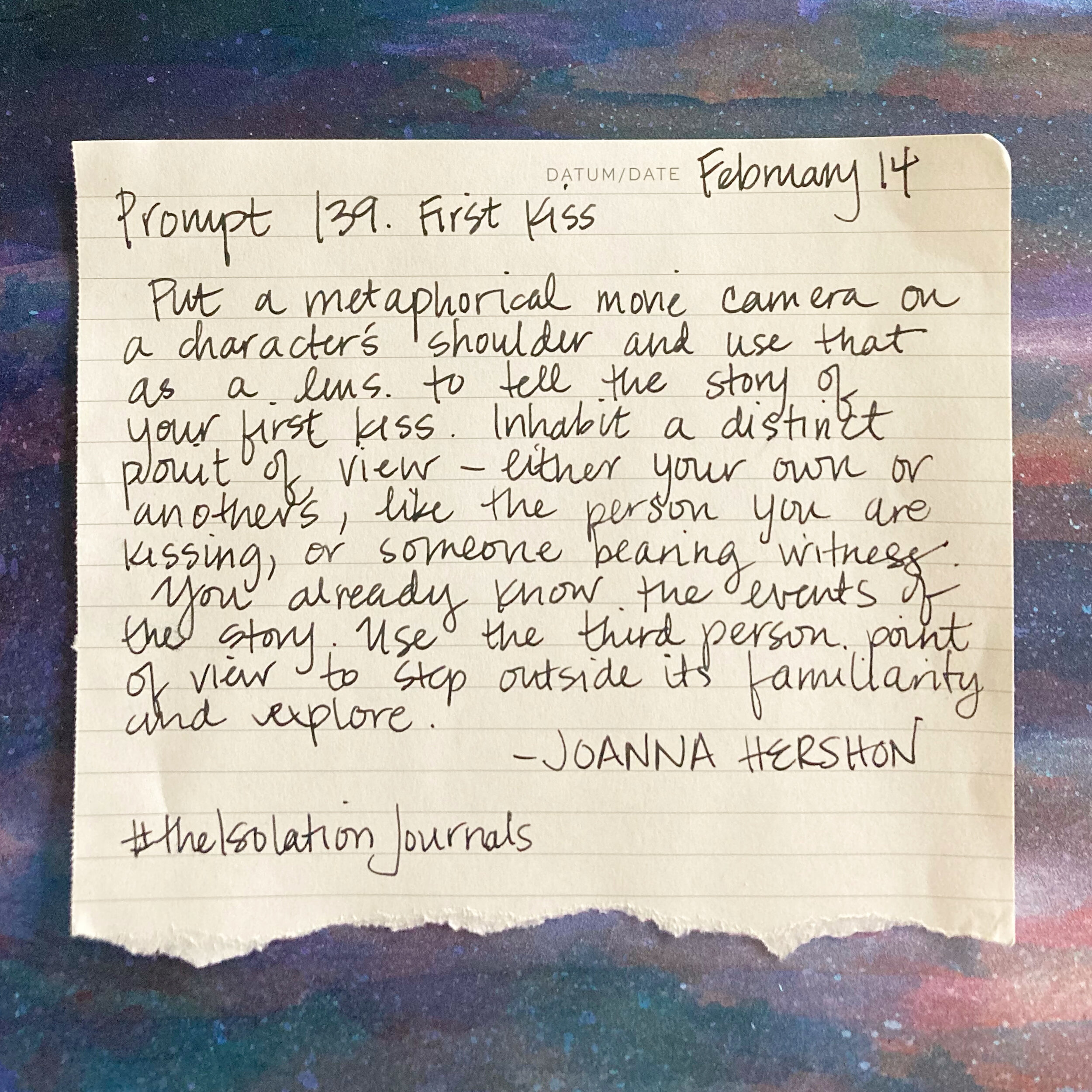139. First Kiss – Joanna Hershon
What does this character want? How does their desire affect their perspective? Especially when one character’s desire is at odds with another’s?
We all have stories so familiar that they’re simply a part of who we are. Sometimes these stories don’t even feel like stories. For instance: my first kiss. When we think of these familiar tales, they’re from our first-person point of view, memories full of impressionistic details (bottom bunk, scrape of metal, scent of worn cotton).
But what happens when we use the story as a unique opportunity, a narrative springboard? If you put a metaphorical movie camera on a character’s shoulder, you get what writers call the close third-person point of view. Applying this close-third lens to our own memories allows us to step outside of their familiarity and explore our actions, our thoughts, our desires.
My background is originally in acting, and while I was getting my MFA in fiction, I began to notice its influence on how I tell stories. In writing, as with acting, I always come back to desire. What does this character want? How does their desire affect their perspective? Especially when one character’s desire is at odds with another’s?
What I’ve found is that, more often than not, a character’s desire is the story.
– Joanna Hershon


